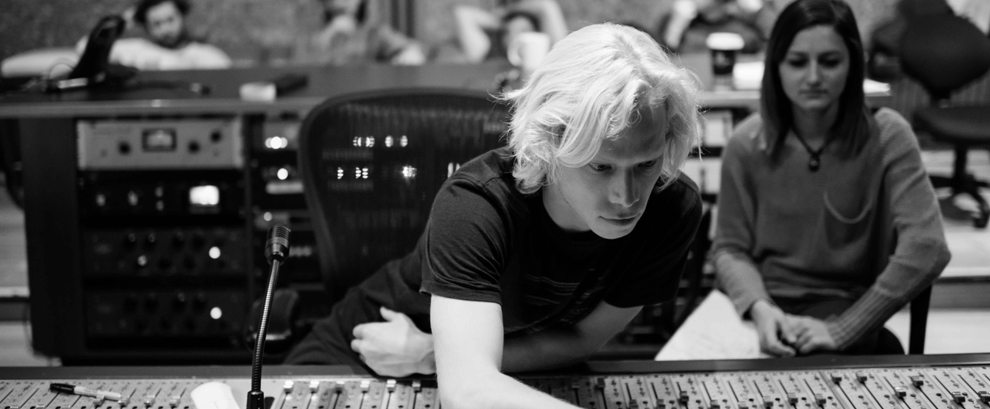Category
audio
Biography and Interview
Biography
Adrian has been working in music for over 15 years, beginning his career at Battery Studios in London, and by 2008 was working as an engineer at Miloco Studios.
In 2012 Adrian moved to Australia, and works predominantly for Sony Music as their in-house engineer.
He has worked with household names such as Alicia Keys, Ricky Martin and John Legend, international bands such as Stereophonics, The 1975 and Arctic Monkeys, and Australian artists including Boy and Bear, Delta Goodrem and Dami Im.
He has been nominated for a Grammy (for work on Pharrell’s album “G I R L”) and an ARIA Award (For Gang of Youths’ “Radioface”), and most recently co-produced and engineered the ARIA #1 album “Go Farther in Lightness” for Gang of Youths.
Or, as Ollie (age 2) likes to put it, Daddy “does buttons” at work.
Interview
Who or what inspired you through your early years to explore your passion for music and audio?
I’ve been playing music since I was 7 when I first picked up a recorder – progressing to clarinet, piano and guitar by age 12.
I’ve always been fascinated by technology and that combined with my love of music invoked an interest in production and recording.
I was lucky to have had very supportive parents (both emotionally and financially!) and great teachers – in particular my senior school teachers and my guitar teacher – who inspired and pushed me.
What activities did you participate in whilst you were at school to build your career?
I had music lessons throughout school, and played in school orchestras and bands.
By late high school I was playing in a rock band, and gigging in pubs, as well as experimenting with recording on early computer programs and “4 track” tape machines.
I’m not sure at this point it was with a view to a “career”, but my sporting activities were limited – music was what I did!
When you were at school and planning for the next step in further education or training, what were your plans at the time? Did you plan on pursuing audio as a career?
By my final 2 years of school we had to specialise in certain subjects, and I chose those which were required by the better audio engineering degrees (Maths, Physics, Music).
At that point I was primarily interested in playing and saw learning the recording process as beneficial to that path, so I chose a university degree that had a strong popular music element, but also had a scientific aspect (I studied Music, Acoustics and Recording at Salford University, UK).
What steps did you initially take during or after school to develop your career?
Going to university was the most significant step for me.
Whilst I was there, my focus shifted from playing to the production process – I think I realised that the life of a starving musician wasn’t one I was keen on, and I was better at the production side than I was at playing in a band (though I have continued to play in many bands, and still play regularly on productions I’m working on).
How have you built contacts in the audio/production industry over time?
I think my whole career has been based on contacts and networking.
My first proper “job” came from a chance meeting during a week of recording studio work experience – that meeting led to an introduction, to a casual job helping out, to a full time job for 6.
When I moved to Australia it was a random phone call helping out an acquaintance which led to an introduction which led to my current position.
If I have a strength in the business side, it’s that I chase down every possible opening, and keep following up on any opportunity – often they still come to nothing but sometimes it pays off, and for me it’s paid off often enough to get me to where I am.
What do you love about your job?
That I get to spend most days in a creative environment, free of meetings and paperwork.
That I get the chance to create something that can be long lasting and reach people the world over, and that it can seriously affect the emotional state of the listener if I do my job right!
And of course, it’s still a buzz to hear your work on the radio, or read a gushing review.
How have you developed your talent over time?
Observation, experimentation and practice.
I’ve been lucky enough to learn over the shoulder of some of the greatest engineers of our time; people who’ve worked with bands and artists like Bob Marley, U2, even the Beatles and Stones.
I’ve had opportunities to try out the techniques I’ve watched others doing and find out what bits do and don’t work for me.
I’ve also done a LOT of recording and mixing – I spend 40+ hours a week working on soley on music and recording, more in a busy period, and when certain things become second nature it lets you concentrate on the more creative elements.
I also spend a lot of my free time reading interviews and watching the occasional YouTube tutorial if I feel I need to brush up somewhere!
Describe a typical day in the studio for you.
It really does depend on what I’m doing, and where I’m at on a project!
I might be alone most of the day, or I might have people with me the whole time.
I might be mixing (which is usually fairly solitary) or I might be recording a person or persons, in which case I’ll usually have the artist(s) plus possibly management or record label present.
I might be recording a piano or guitar or vocal part solo, or I might have a whole band set up (in which case I’ll usually have an assistant helping me) and a hectic environment!
Sometimes I might have 2 or even 3 smaller sessions in a day, and sometimes I just have a list of tasks I have to soldier through until I’m done.
I don’t usually start early (around 10.30, post daddy-son time!) but the earliest I’ll usually finish is around 7.30pm (if I’m on my own), or often much later if it’s a big session.
Very occasionally I’ll book in a maintenance day where we might take some of the studio apart and fix any problems that have come up – the struggle is finding the spare day!
What are your tips for young people who are keen make a career in audio engineering and sound production?
Whilst personal mentoring and opportunities are sparse, there’s never been a better time to use online resources.
There’s some amazing courses and tutorials available – inside looks at what real engineers are doing on real releases on the radio – and much of it is free on YouTube and other sources, though the paid-for content is often better curated.
Dedication is very important – the most successful people put their careers above everything else (I was working 60-70hr weeks or more when I was an assistant engineer in London!).
It’s so competitive out there, if you’re not doing it, someone else is and progressing faster than you are!
Be humble – whilst university courses are useful in learning the basics and the “proper” way to approach something, it won’t necessarily get or keep you employed – people want to work with fun, easy-going people who listen and don’t get in the way.
Much of the technical can be learned “on the job” but if the client doesn’t want you in the room because you talk too much/aren’t relaxing to be around, then you won’t get that opportunity!
What have been some of the highlights of your career so far?
Most recently, I co-produced and engineered the album “Go Farther in Lightness” by Gang of Youths, which went to #1 on the ARIA Charts and has had almost universal praise, including Triple J Feature Album and a 5 Star review in Rolling Stone magazine.
I’ve mixed a number of tracks for Sony (my main employers) recently including EPs for Nocturnal Tapes and Jackie Onassis, and tracks for Polar Heart and Tash Sultana.
I also found a young band called High-Tails playing in a bar, and produced an EP and 2 further singles for them, which got them signed and playlisted at Triple J.
Finally, I was lucky enough to get a Grammy Nomination for work on Pharrell’s “G I R L” album and an ARIA Award nomination for Gang of Youths’ “Radioface”.
Website, adrianbreakspear.com
Soundcloud, soundcloud.com/psycho_monkey
Photo credits, Oscar Coleman


